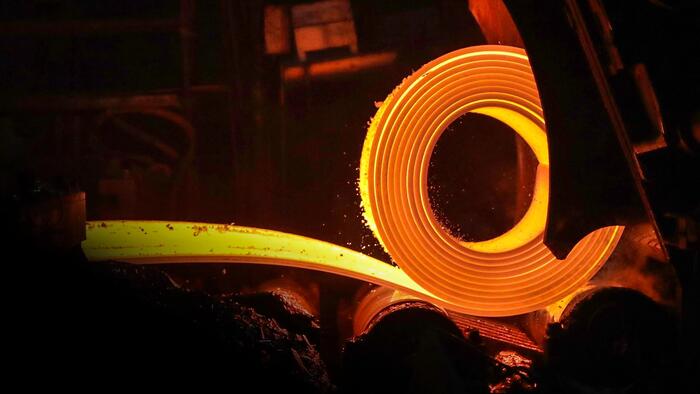


Authored by Autumn Spredemann via The Epoch Times (emphasis ours)
The recycled metals industry is growing domestically and internationally, in part fueled by the rapid expansion of construction and automotive manufacturing. Now, tariffs may be giving it a boost.
The U.S. market for scrap metal recycling registered a growth of 3.7 percent between 2017 and 2021. The global recycled metals market is expected to expand 6 percent from 2025 to 2034, according to an analysis by Precedence Research. It was valued at $2.8 billion in 2024.
Recently, industry insiders say U.S. recycled metals businesses haven’t experienced any direct impacts from new tariffs, but they’ve noticed changes in demand for various alloys.
On Feb. 10, President Donald Trump imposed a 25 percent tariff on imports of aluminum and steel, raising that to 50 percent on June 3.
Recycled metals sourced from North America are not subject to the tariffs.
Some U.S. companies are now splitting their metal sourcing, Michael Schmied, a commodities expert and senior financial analyst at Kredite Schweiz, told The Epoch Times.
They’re using imported metals for the non-critical parts of their operations, but turning to domestic or recycled minerals for essential production because those alloys aren’t subject to import duties.
Buyers may be reluctant to pay higher prices on imported metals if recycled materials offer similar quality.
“That shift creates a baseline demand for recycled metals that didn’t exist before …. Businesses are treating domestic supply like insurance against future supply chain shocks,” Schmied said.
“I’ve noticed that the tariffs lifted prices at first, but the effect was mixed. Higher costs on imported steel nudged buyers to care more about quality and consistency, which let some recyclers pick up new orders,” he said.
Schmied said the tariffs also “raised equipment expenses and squeezed cash flow, so any upside came with extra risk.”
He said an example is metal shredder wear parts, which many in the industry import from China, and which are now subject to import duties.
“Overall, the [Trump] policy opened a door, but it also raised the stakes for everyone in the supply chain,” Schmied said.
Generally, when scrap metal is sorted and purified by a recycling company, the metal is melted down and recast—made into rolls, ingots, or sheets—depending on the type of metal and its intended purpose.
After this process, recycled metals can be sold to manufacturers for use in new products. This can be done with significantly less expense than mining new, unprocessed elements.
Jodie Brewster, senior vice president of Texas Metals & Recycling, told The Epoch Times her business hasn’t experienced any operational setbacks from Trump’s tariffs.
She said the scrap keeps coming in and the business is always able to find buyers—usually industrial manufacturers, known as “mills.”
One of the trends she has observed in recent months is a price increase for aluminum and a steep drop in the price of heavy metals, including steel.
“A truck’s worth [of aluminum] today would sell for like a dollar a pound. A year ago, that would’ve sold for 91 cents a pound,” Brewster said.
“I have active buyers who want aluminum, sometimes wanting more than we can provide.”
Dmitriy Cheban, a partner at Tennessee-based All Metal Recycling company, has witnessed a similar pattern with aluminum prices.
“All types of aluminum are wanted. You can make all kinds of stuff with it,” Cheban told The Epoch Times.
He said aluminum is the most profitable scrap metal his business takes in. He noted that part of that is due to the extreme versatility of the alloy, which is used in everything from cans to car parts, furniture, and even medical equipment.
Cheban said he can sell aluminum for between 50 cents and 90 cents a pound. Comparatively, steel is only going for about 7 cents a pound, he said.
“Other metal prices [going down], like steel, it’s from all the market uncertainty,” Cheban said.
Brewster has experienced the same with steel prices, seeing an overall drop in the demand for heavy metals in Texas mills.
The steel Brewster sells now is “shredder feed.”
Read the rest here...
